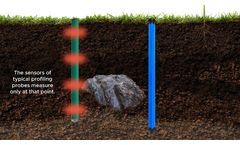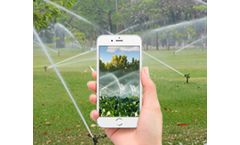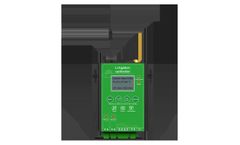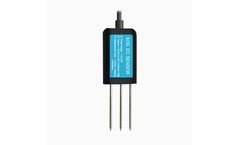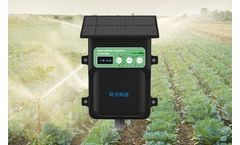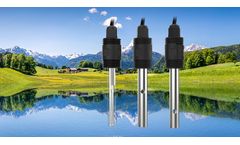Refine by
Soil Moisture Monitoring Articles & Analysis
60 articles found
As global agricultural practices address environmental and economic challenges, regenerative agriculture has stood out as a promising approach to creating more sustainable and robust farming systems. This farming method focuses on restoring soil health, enhancing biodiversity, and improving water cycles, ultimately leading to more sustainable food production. Innovative tools and technologies are ...
Fruit picking, a labor-intensive and time-sensitive task, presents unique challenges that have troubled farms and agribusinesses for a long time. However, the emergence of smart harvest scheduling promises to transform this age-old practice. By using advanced technologies, smart harvest scheduling offers a more efficient, cost-effective, and sustainable approach to fruit ...
Our goal is to provide you with the tools to make the right decision when it comes to selecting the right soil sensor for your application. We are delving into the most asked question. How do soil moisture sensors work, and what is the difference between a point and profile measurement? Soil moisture sensors measure the water content in the soil and can be used to estimate the amount of stored ...
Smart irrigation helps maintain soil health by preventing excessive waterlogging and optimizing soil moisture levels for healthy root development. ...
ByJXCT
Today's soil sensors can measure a wide range of parameters, including moisture content, temperature, nutrient levels, pH, compaction, and even soil microbial activity. ...
ByJXCT
Benefits of Soil Sensor Technology: Improved Resource Efficiency: Soil sensors allow farmers to optimize resource use by providing real-time information on soil moisture levels. ...
ByJXCT
In recent years, advanced soil sensor systems have revolutionized the way we monitor and assess soil health parameters. This article explores the significance of monitoring soil health with advanced soil sensor systems and the impact it has on modern agriculture. ...
ByJXCT
Benefits of Intelligent Irrigation Systems for Agriculture Improved Crop Yields: Intelligent irrigation systems can help improve crop yields by providing the right amount of water at the right time. By continuously monitoring soil moisture levels and other factors, these systems can ensure that crops receive the water they need to grow and ...
ByJXCT
By using sensors and advanced algorithms, these systems can measure the moisture content of the soil, monitor the health of the plants, and adjust watering levels accordingly. ...
ByJXCT
How Automatic Irrigation Systems Work: Automatic irrigation systems utilize a combination of sensors, advanced algorithms, and data analysis to determine the optimal amount of water for plants. Sensors are placed in the soil to monitor moisture levels, while advanced algorithms analyze the data to predict plant needs. ...
ByJXCT
Soil moisture sensors are used for a variety of purposes, including agricultural and environmental monitoring. In agriculture, soil moisture sensors are used to monitor the moisture content of soil, enabling farmers to optimize water use and increase crop yields. ...
ByJXCT
Abstract:As the global population continues to grow and resources become increasingly strained, the efficiency and sustainability of agricultural production are becoming increasingly important. Soil sensors play a vital role in this process, providing real-time information on soil conditions to help farmers manage and improve their fields more ...
ByJXCT
By incorporating weather forecasts, soil moisture sensors, and evapotranspiration data, these controllers enable farmers to tailor irrigation schedules to meet the specific needs of their crops. ...
Monitoring environmental conditions: Soil moisture data is valuable for studying climate change, drought patterns, and flood risks. ...
However, the efficient use of water is becoming increasingly important due to water scarcity and the need to conserve resources. Soil EC sensors offer a valuable tool for irrigation management, allowing farmers to monitor soil moisture levels and make informed decisions about when and how much to irrigate. ...
This remote access eliminates the need for manual adjustments and allows real-time monitoring of irrigation activities. b. Automated Scheduling: The controller enables automated scheduling based on factors such as crop type, soil moisture levels, weather conditions, and water requirements. ...
Inefficient irrigation practices lead to water waste, reduced crop productivity, and soil salinity. Therefore, agricultural water management strategies must focus on maximizing irrigation efficiency while minimizing water, energy, and fertilizer use. ...
If you’re a cannabis grower, you know that healthy plants are essential for a successful crop. However, even with the best intentions and care, nutrient burn can occur and cause significant damage. Nutrient burn is a common problem that can affect cannabis plants. It leads to a range of cannabis leaf symptoms and ultimately affects the plant’s growth and yield. In this article, we ...
Water quality sensors enable farmers to monitor essential parameters such as pH levels, electrical conductivity, dissolved oxygen, and nutrient concentrations in irrigation water. ...
Soil tension, also known as soil moisture tension, is the force exerted by the soil particles as they hold water. ...


